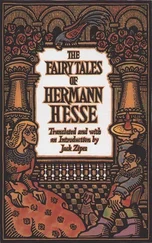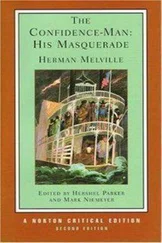Herman Whitaker - The Settler
Здесь есть возможность читать онлайн «Herman Whitaker - The Settler» — ознакомительный отрывок электронной книги совершенно бесплатно, а после прочтения отрывка купить полную версию. В некоторых случаях можно слушать аудио, скачать через торрент в формате fb2 и присутствует краткое содержание. ISBN: , Жанр: foreign_prose, на английском языке. Описание произведения, (предисловие) а так же отзывы посетителей доступны на портале библиотеки ЛибКат.
- Название:The Settler
- Автор:
- Жанр:
- Год:неизвестен
- ISBN:http://www.gutenberg.org/ebooks/43450
- Рейтинг книги:4 / 5. Голосов: 1
-
Избранное:Добавить в избранное
- Отзывы:
-
Ваша оценка:
- 80
- 1
- 2
- 3
- 4
- 5
The Settler: краткое содержание, описание и аннотация
Предлагаем к чтению аннотацию, описание, краткое содержание или предисловие (зависит от того, что написал сам автор книги «The Settler»). Если вы не нашли необходимую информацию о книге — напишите в комментариях, мы постараемся отыскать её.
The Settler — читать онлайн ознакомительный отрывок
Ниже представлен текст книги, разбитый по страницам. Система сохранения места последней прочитанной страницы, позволяет с удобством читать онлайн бесплатно книгу «The Settler», без необходимости каждый раз заново искать на чём Вы остановились. Поставьте закладку, и сможете в любой момент перейти на страницу, на которой закончили чтение.
Интервал:
Закладка:
As his cabin was nearest the school, the honor of boarding the teacher fell to the postmaster; and though her choice caused heart-burnings among others who had coveted the distinction, it was conceded wise. For not only did the Glaves's establishment boast the only partitioned room in the Canadian settlement, but his wife, a tall, gaunt woman, excelled in the concoction of carrot-jams, turnip-pies, choke-cherry jellies, and other devices by which skilled housewives eke out the resources of an inhospitable land.
In the middle of April school opened; a dozen small thirsters after knowledge arranged themselves in demure quiethood before authority that was possessed of its own misgivings. Teacher and scholars regarded one another with secret awe. But this soon wore off and they toiled amicably along the road which winds among arithmetical pitfalls and grammatical bogs to academic glories. It was milestoned by deputations, that road, said visitations generally consisting of one person – mostly unmarried and very red in the face – who inquired if the "kids was minding their book," then went off chuckling at his own hardihood. Also it seemed as though all the stray cattle for fifty miles around headed for the school. Helen grew quite expert in ringing variations on the fact that she "had not seen a strawberry steer with a white patch on the left flank." Her smile always accompanied the answer, and the owners of the hypothetical estrays would carry away a vision of a golden and glorified school-ma'am. What of these pleasant interests, and an unexpected liking which she had developed for the work itself, she became very happy in a quiet way as time dulled the edge of her sorrow.
But during the three months that preceded school opening the fates had not been idle. Attending strictly to their knitting, they had run a tangled woof in and out the warp of several lives.
"She's so good!" Helen had exclaimed, in her gratitude of Mrs. Leslie; but analysis of that lady's motives would have shown them not altogether disinterested.
Excluding a certain absence of principle that was organic, and therefore hardly chargeable against her till philosophers answer the question, "Can the leopard change his spots or the Ethiop his skin?" Mrs. Leslie was not fundamentally vicious. Like the average of men and women, she would have preferred to have been good, and, given a husband whom she feared and loved, she might have developed into a small Puritan mightily jealous for their mutual prestige. Lacking this, however, she was as a straw in a corner, ready to rise at the first wind puff. If, so far, she had lived in the fear of Mrs. Grundy, her conformity inhered in two causes – no man in her own set had stirred her nature, and, till Helen came, the winds of Opportunity had blown away from Carter.
What drew her to him she herself could hardly have said; and if the cause is to be found outside of the peculiar texture of her own nature, it must be in the natural law which makes opposites attract. Nature wars incessantly against the stratification which precedes social decay. Whether of blood or water, she abhors stagnation. Her torrential floods cleanse the backwaters of languid streams; passionate impulses, such as Mrs. Leslie's, provide for the injection into worn-out strains of the rich corpuscles that bubble from the soil. Carter's virile masculinity, contrasting so strongly with the amiable effeminacy of her own set, therefore attracted Mrs. Leslie, and, having now lassoed Opportunity – in the shape of Helen – she hitched the willing beast and drove him tandem with inclination.
Either by intuition or knowledge subtly wormed from himself or others, she learned Carter's habits, and no matter the direction of the drives which she and Helen took together, it was pure accident if they did not come in touch with him. Also at intervals they called at his cabin, after one of which visits Mrs. Leslie put the house-cleaning idea into Helen's head, insinuating it so cleverly that the girl actually thought that it originated with herself.
"Did you ever see anything so untidy?" she exclaimed, as on that occasion they drove homeward. "Harness, cooking-pots, provisions, all in a tangle. Bachelors are such grubby creatures! But really, my dear, he deserves to be comfortable. Couldn't we do something? – hire some one to – "
If she had counted on the girl's grateful enthusiasm, it did not fail her. "Let's do it ourselves!" she exclaimed. "I'd love to!"
So, in Carter's absence, the two descended upon the cabin with soap, pails, and hot water. Mrs. Leslie, the delicate, white-armed woman who kept a girl to do her own work, rolled up her sleeves and fell to work like a charwoman; and it is doubtful if she were ever happier than while thus expending, in service, her reserve of illegal feeling. There was, indeed, something pitiful in her tender energy. When, the cleaning done, she sat demurely mending a rent in Carter's coat, she might have been the young wife of her imaginings.
Her sentimental expression moved Helen to laughter. "You look so domestic!" she tittered. "So soft and contemplative. One would think – "
Mrs. Leslie was too clever for transparent denial. "I don't care," she answered. "I like him. He's awfully dear." And her expressed preference affected Helen – helped to break down the last barriers of caste feeling between herself and Carter. Till then she had always maintained a slight reserve towards him, but when, coming in unexpectedly, he caught them at their labors, she was as free and frank with him as she had ever been with a man of her old set. The change expressed itself in her hand-shake at parting, though it fell far short of Mrs. Leslie's lingering pressure.
In his surprise at the quantity and quality of the latter, Carter may have returned it, or Mrs. Leslie may have mistaken the reaction of her own grip for answer. Anyway, she thought he did, and on the way home plead weariness as an excuse to indulge luxurious contemplations. She fed on his every look, tone, accent, coloring them all with her own feeling, an indulgence for which she would pay later; indeed, she was even then paying, in that it was eating away her weak moral fibre as acid eats a metal, preparing her for greater licenses. At first, however, she was timorous – content with small touches, accidental contacts, the physical sense of nearness when, as often happened, they coaxed him to take them for a drive behind his famous ponies.
But such slight fare could not long suffice for her growing passion. Having observed, outwardly, the laws of social morality only because, so far, they had consorted with inclination; knowing, inwardly, no law but that of her own pleasure, it was only a question of time until she would become desperate enough to balance reputation against indulgence.
This came to pass a couple of months after Helen had opened up school, and would have happened sooner but that even a reputation cannot be given away without a bidder. Not that Carter was ignorant or indifferent to her feeling. Two thousand years have failed to make man completely monogamous and he is never displeased at a pretty woman's preference. A condition had interposed between the fire and the tow. In every man's life there comes a time when, for the moment, he is impervious to the call of illicit passion. A first pure love bucklers him like a shining ægis, and while certain pure eyes looked out upon Carter from earth, air, and sky, wherever his fancy strayed, he would not barter a sigh for the perishable commodity Elinor Leslie offered. Having, however, formed her judgments of men from the weak masculinity about her, she could not realize this. Imagining that he would come at the crook of her finger, she tried to recapture Opportunity.
"Mr. Carter was so kind and considerate of Helen that I think we ought to take him up," she said to her husband one day; and Leslie, whose good-natured stupidity lent itself to every suggestion, readily agreed.
Читать дальшеИнтервал:
Закладка:
Похожие книги на «The Settler»
Представляем Вашему вниманию похожие книги на «The Settler» списком для выбора. Мы отобрали схожую по названию и смыслу литературу в надежде предоставить читателям больше вариантов отыскать новые, интересные, ещё непрочитанные произведения.
Обсуждение, отзывы о книге «The Settler» и просто собственные мнения читателей. Оставьте ваши комментарии, напишите, что Вы думаете о произведении, его смысле или главных героях. Укажите что конкретно понравилось, а что нет, и почему Вы так считаете.












